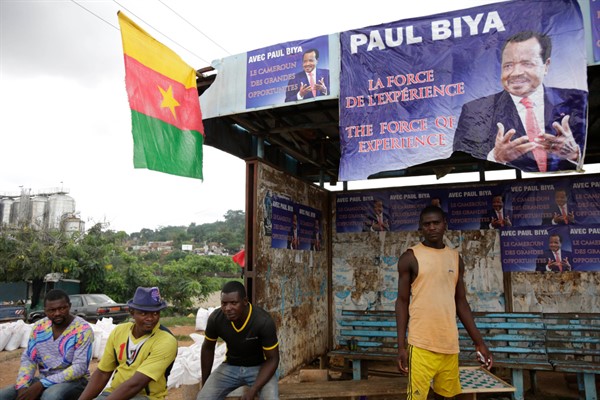When at least 53 people died in Cameroon in late January after a bus collided with a fuel-laden truck—one of the worst road accidents in the country’s history—few observers would have expected that reactions to the tragedy would include ethnic slurs, mainly on Facebook. They were directed toward members of the Bamileke community, from which most of the victims appeared to originate. Cameroon has long prided itself on the relative harmony between the country’s approximately 250 ethnic groups, none of which dominates nationally—a diversity that many Cameroonians consider to be a safeguard against communal violence.
But Cameroon now has to deal with a new reality. A heavily contested presidential election in 2018 has unleashed a new layer of political tensions that have taken an ethnic turn and found a formidable amplifier on social media. Among the supporters of longtime President Paul Biya and the main opposition leader, Maurice Kamto, many now frame the political dispute that arose from that election as a competition for power between, on the one hand, Biya’s Bulu group and the ethnic Beti with whom the Bulu identify, and, on the other, Kamto’s Bamileke community.
If allowed to further deepen its roots, this increasingly ethnic acrimony could lead to violence and threaten the stability of a country already facing a separatist insurgency in its Anglophone region. Cameroon’s social fabric could then be torn apart, especially as both sides position themselves for the eventual end of Biya’s presidency. He will turn 88 next week, after nearly four decades in power. A rash of communal violence in a southern town in October 2019 gave Cameroon a taste of what could come if the genie is not swiftly put back in the bottle.

